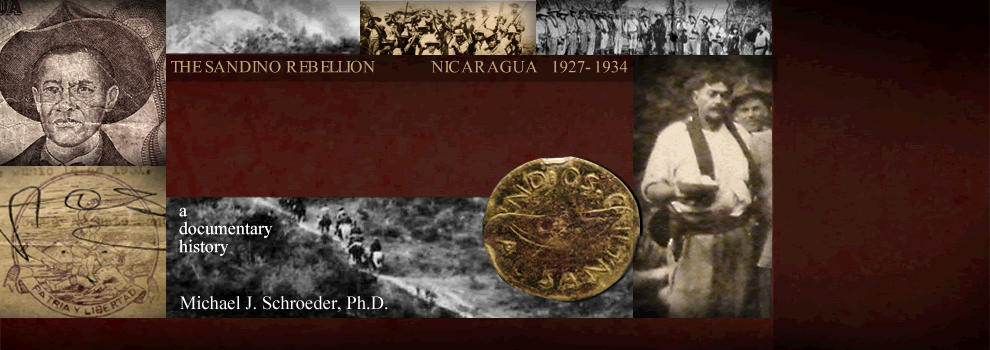|
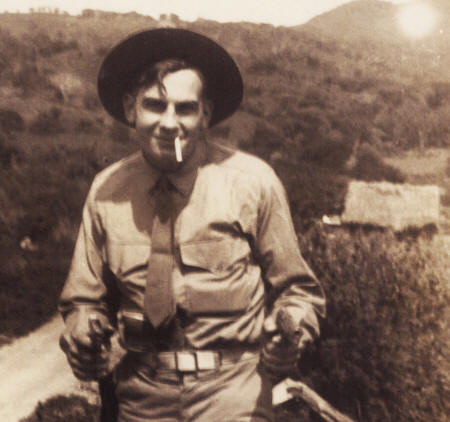 This is the sixth
webpage of photographs
from the collection of Private
First Class William Edward
Plocharski / Planter of the US
Marine Corps, who took these
photos during his deployment in
Las Segovias, Nicaragua, over a
period of two years, from
January 1928 to December 1929.
This is the sixth
webpage of photographs
from the collection of Private
First Class William Edward
Plocharski / Planter of the US
Marine Corps, who took these
photos during his deployment in
Las Segovias, Nicaragua, over a
period of two years, from
January 1928 to December 1929.
The larger
photos were scanned in
high resolution (600 dpi). The smaller
photos (of individual pages of the photo
album) were taken at lower resolution but show
the captions, and for that
reason are included here.
For a full high-resolution image
of each photo, click on
the thumbnail image on the
right-hand side of each Photo ID banner.
This collection has never been
published anywhere else.
I first learned of it in January
2018 thanks to the kind courtesy
of Private Plocharski's (Mr.
Planter's) daughter, Patricia
Barrow of Houston, Texas. I
thank Patricia Barrow and her
family for their generosity in
making these photographs
available and permitting their
publication here.
|
|
 Photo ID: Readers
- Plocharski - P6.01
• On Patrol,
March 1928 Photo ID: Readers
- Plocharski - P6.01
• On Patrol,
March 1928
|
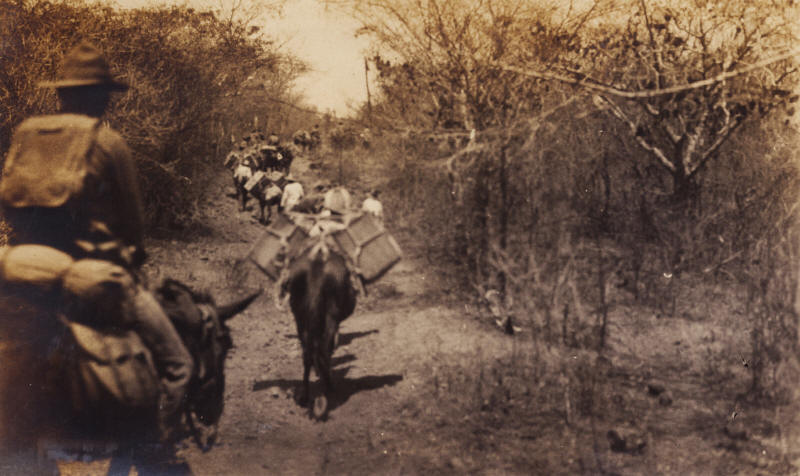
Caption: "March 8 1928.
on Patrol."
Captures the slow, steady
movement of a partially mounted
patrol along a dusty trail
through the scrub landscape of
the Honduran border zone of the
northwestern Segovias.
Some men are mounted, presumably
Marines -- including the
photographer. Other men,
in white shirts and sombreros,
are walking. A wonderful
photograph.
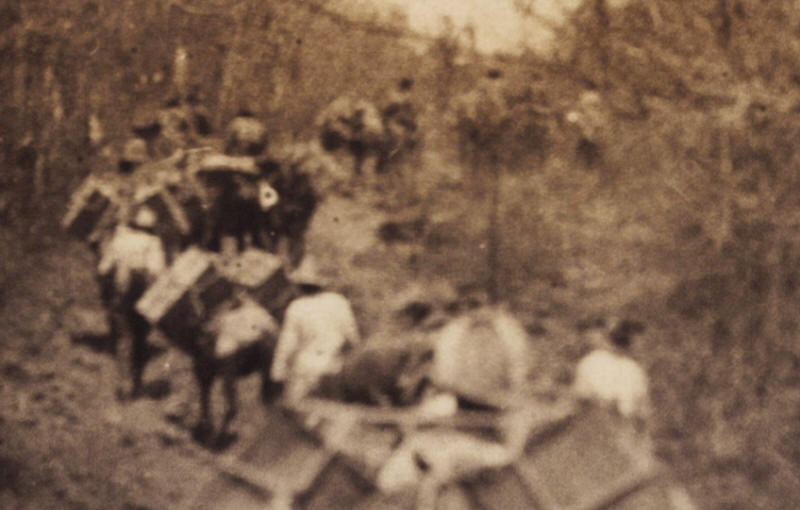
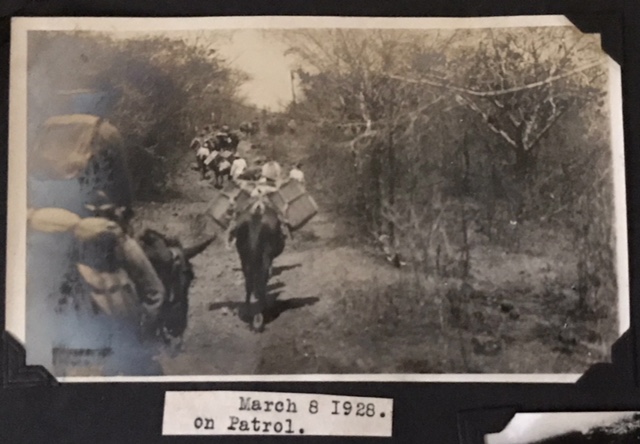
|
|
 Photo ID: Readers
- Plocharski - P6.02
• "River
Ration Patrol" Photo ID: Readers
- Plocharski - P6.02
• "River
Ration Patrol"
|
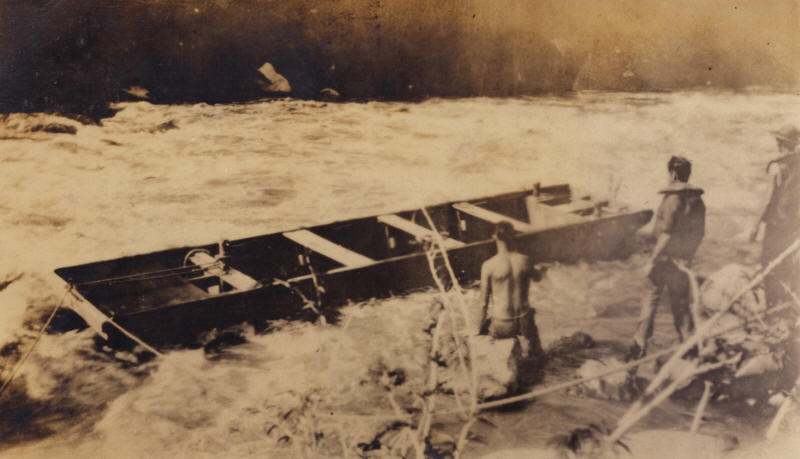
Caption: "River Ration
Patrol".
This is a
serious river.
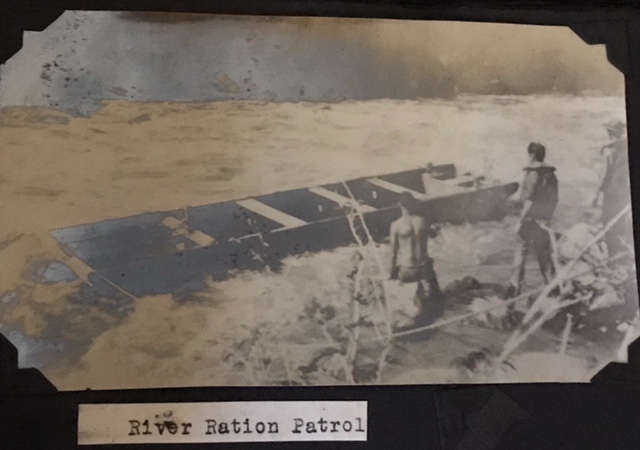
|
|
 Photo ID: Readers
- Plocharski - P6.03
• "Getting an
early start" Photo ID: Readers
- Plocharski - P6.03
• "Getting an
early start"
|
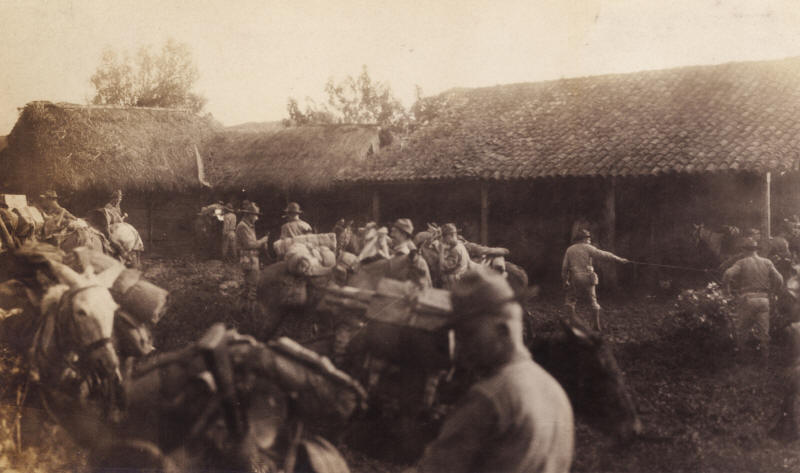
Caption: "Getting an early
start."
A marvelous photograph,
full of movement & action & the
orderly chaos of such military
operations. Brilliant.

|
|
 Photo ID: Readers
- Plocharski - P6.04
• "In Dipilto
Valley" Photo ID: Readers
- Plocharski - P6.04
• "In Dipilto
Valley"
|
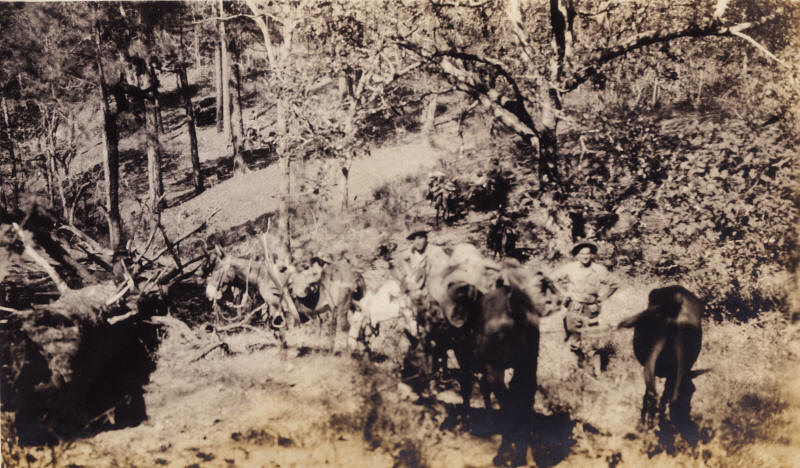
Caption: "In Dipilto
Valley."
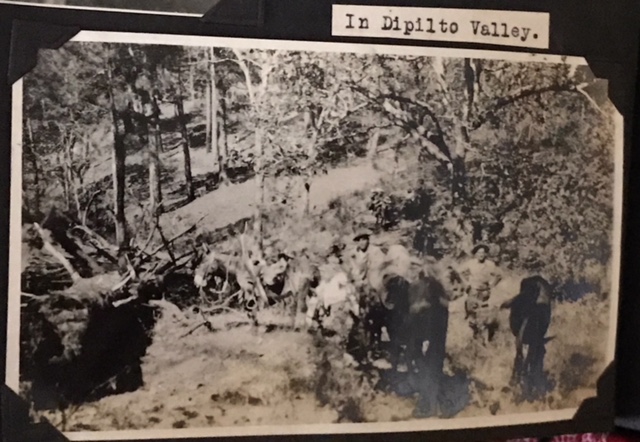
|
|
 Photo ID: Readers
- Plocharski - P6.05
• Plane crash,
Estelí, March 1928 Photo ID: Readers
- Plocharski - P6.05
• Plane crash,
Estelí, March 1928
|
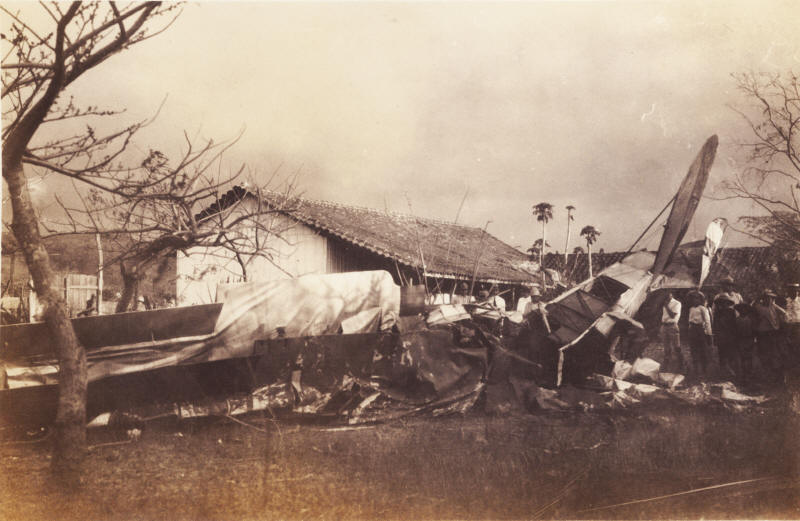
Caption: "Esteli Nic Feb.
27 1928 Plane which took the
lives of 2 aviators, a Buzzard
was the cause of it."
According to the
OFFICIAL
LIST OF MARINE CORPS CASUALTIES
IN NICARAGUA, the
crash occurred in Estelí on
March 8, 1929 — a date I have
corrected to March 8, 1928 for
reasons noted on the webpage
housing this document (namely,
that Capt. Merritt Edson
mentioned the death of Capt. Wm.
Byrd in a plane crash in a
personal letter dated March 28,
1928; see
EAST COAST, 1928A, p. 3).
The two dead Marine Corps
aviators were Capt. William C.
Byrd and Sgt. Rudolph
Frankforter.
A gathering of local men and
boys inspect the crash -- at
least a dozen by my count.
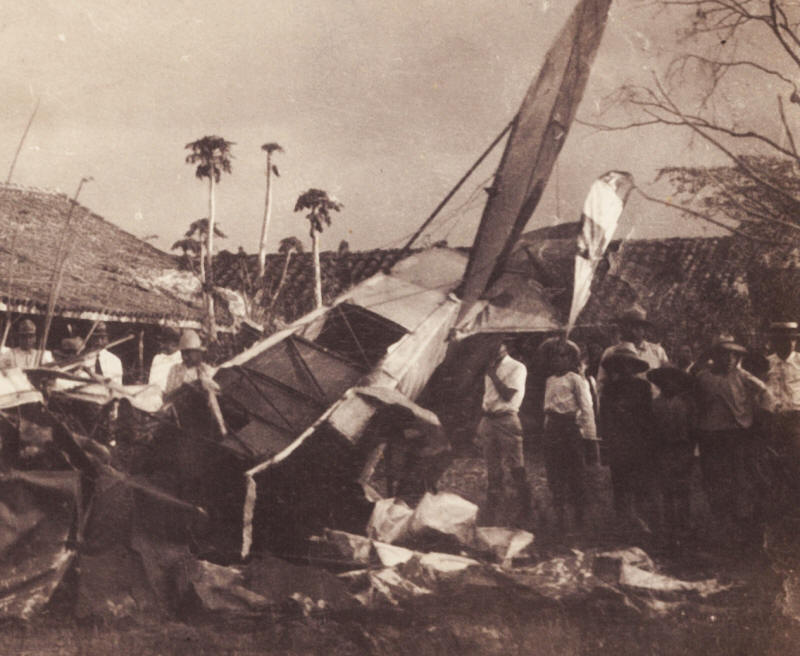
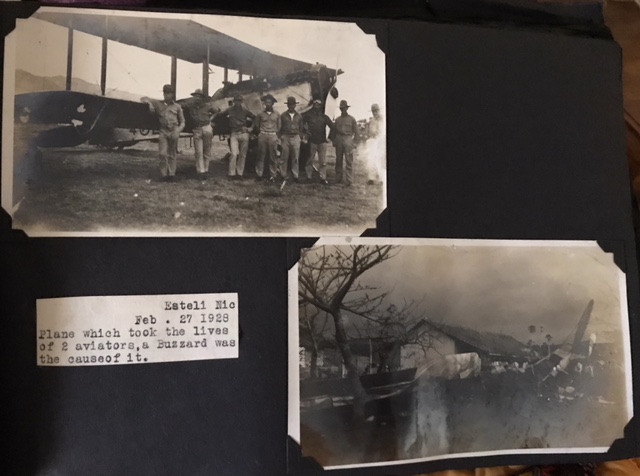
|
|
 Photo ID: Readers
- Plocharski - P6.06
• Marines
posing with aeroplane Photo ID: Readers
- Plocharski - P6.06
• Marines
posing with aeroplane
|
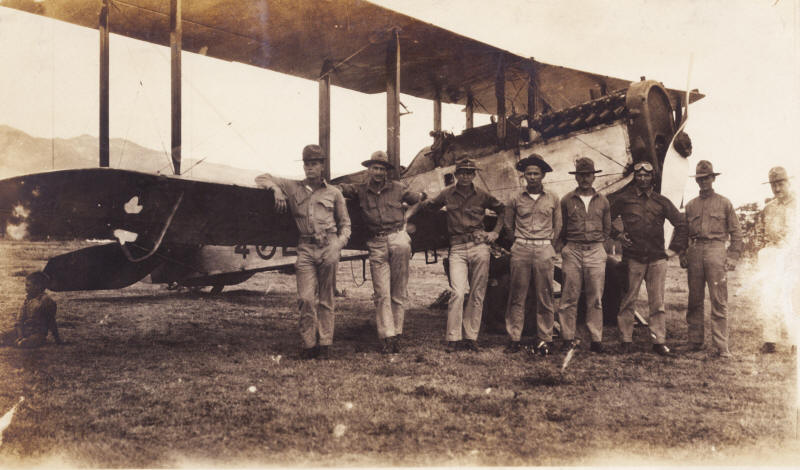
No caption.
|
|
 Photo ID: Readers
- Plocharski - P6.07
• Bull carts
bringing in rations, Estelí,
Feb. 1928 Photo ID: Readers
- Plocharski - P6.07
• Bull carts
bringing in rations, Estelí,
Feb. 1928
|
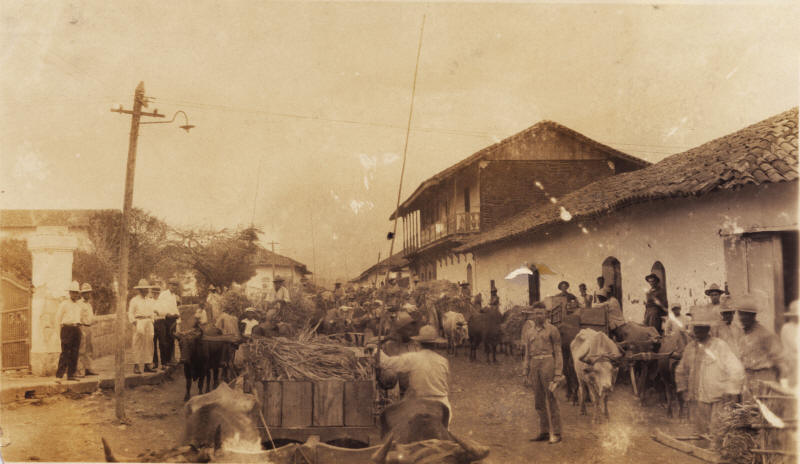
Caption: "Esteli Nic. Feb
3 1928. Bull Carts Bringing in
rations Top Sargent Bernica is
the Center."
Another marvelous photograph,
capturing the chaotic movement
of bull-carts from outlying
districts into town, laden
mainly with what looks to
be fodder for horses. Here
we see visual confirmation of
Marine-Guardia
reports emphasizing that the
Marines' presence in Segovian towns
like Estelí sparked considerable
local commerce to supply this
new market.
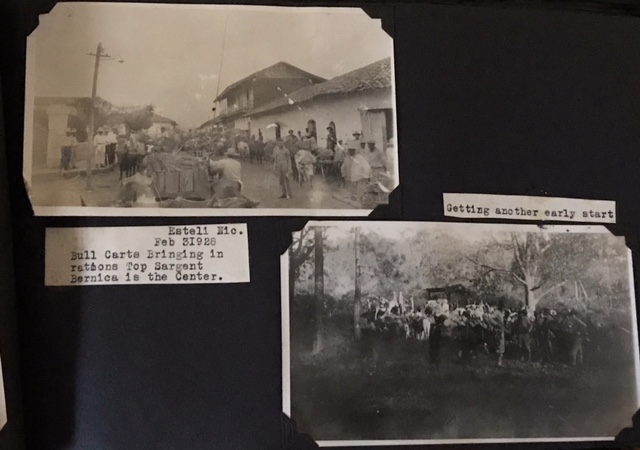
|
|
 Photo ID: Readers
- Plocharski - P6.08
• "Some of the
men who helped burn Santa María" Photo ID: Readers
- Plocharski - P6.08
• "Some of the
men who helped burn Santa María"
|
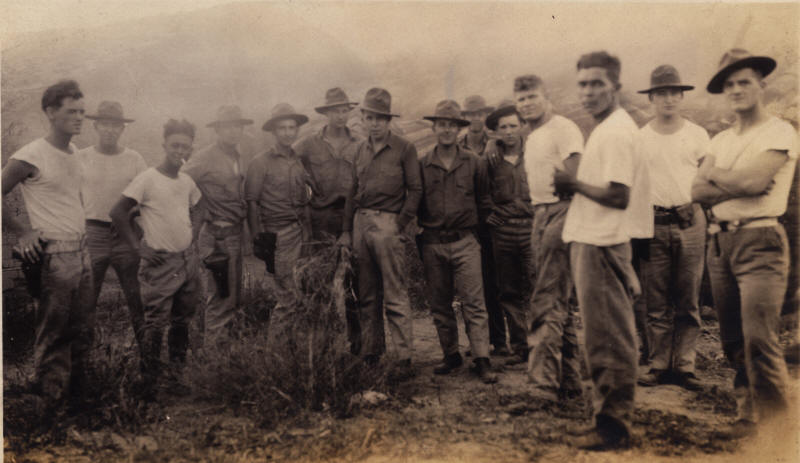
Caption: "Santa Maria Nic.
March 22 1929. Some of the Men
who Helped to burn the Town of
Santa Maria."
This is a
chilling caption, and along with it, a
chilling photo. The 14 men
look to be standing in front of
smouldering ruins, judging from the partially intact brick
wall at far lower-left, and the clouds
of smoke and splayed lumber and
building materials immediately
behind them. Why are
some men wearing Marine Corps
uniforms, and others white
t-shirts? Are some
Nicaraguan Voluntarios? At
center-right, a large,
rock-jawed man in a white
t-shirt drapes his arm around a
much smaller uniformed Marine.
Why this gesture? I have
found no direct evidence that
the US Marines burned the town
of Santa Maria (west of Ocotal
near the Honduran border) in
March 1929, but considerable
circumstantial evidence that
such a burning was not unlikely.
During this period, Capt.
Stockes and various columns of
Voluntarios ranged widely and
freely across this district,
chasing EDSN General Carlos
Salgado as he and his troops
hopscotched across the Honduran
border eluding the Marines and
Voluntarios. This period
also saw considerable
frustration among US Marine
Corps commanders about the lack
of cooperation of Honduran
border officials and local
residents on both sides of the
border. The first half of
1929 also saw spotty
documentation of
Marine-Voluntario operations in
this zone.
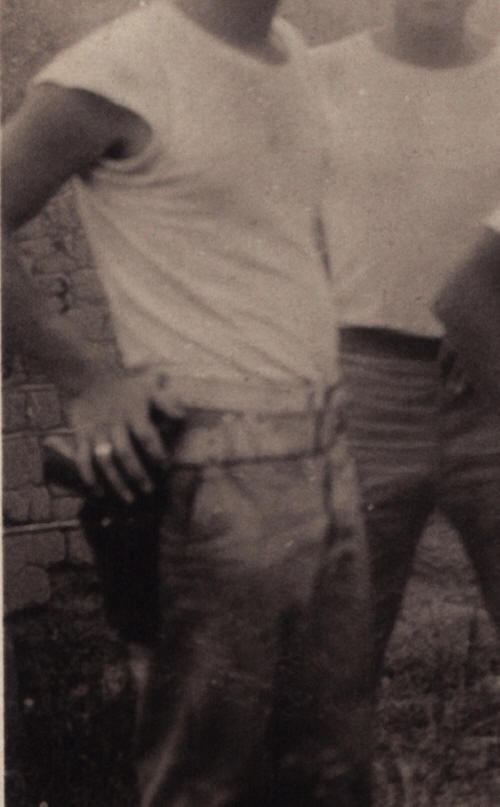
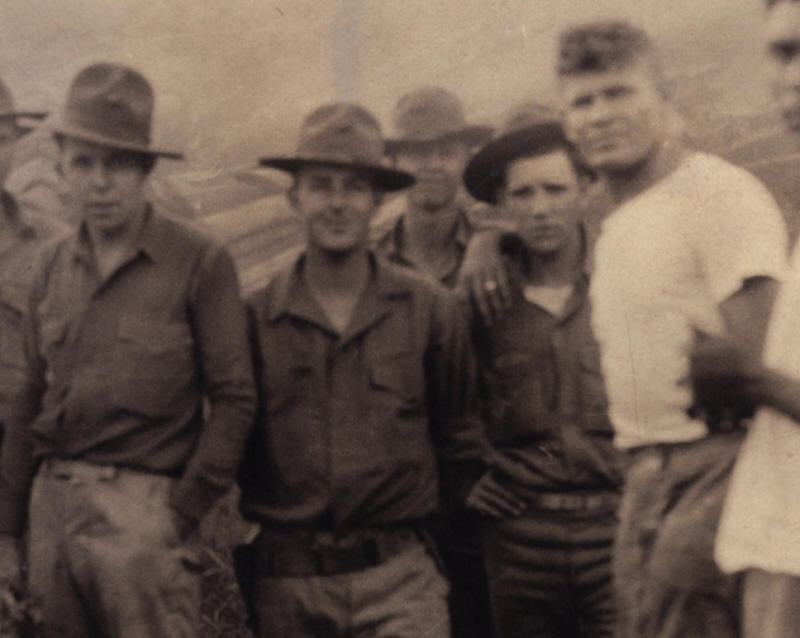

|
|
 Photo ID: Readers
- Plocharski - P6.09
• "Some of the
men who helped burn Santa María" Photo ID: Readers
- Plocharski - P6.09
• "Some of the
men who helped burn Santa María"
|
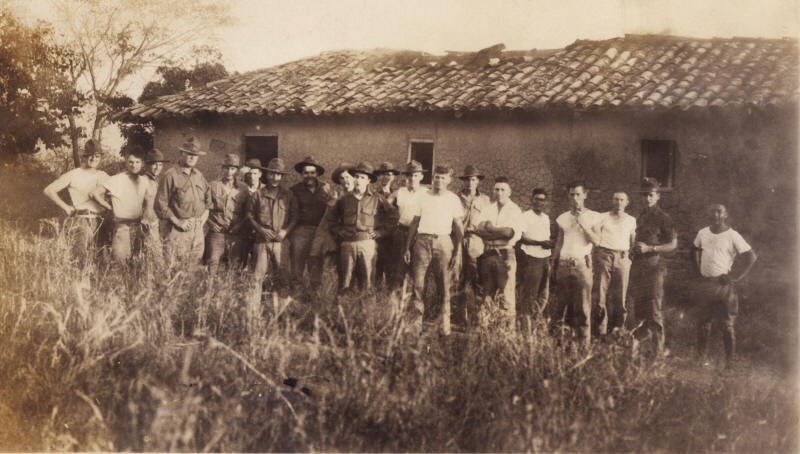
Caption: "Santa Maria Nic.
March 22 1929. Some of the Men
who Helped to burn the Town of
Santa Maria."
|
|
 Photo ID: Readers
- Plocharski - P6.10
• "Getting
another early start" Photo ID: Readers
- Plocharski - P6.10
• "Getting
another early start"
|
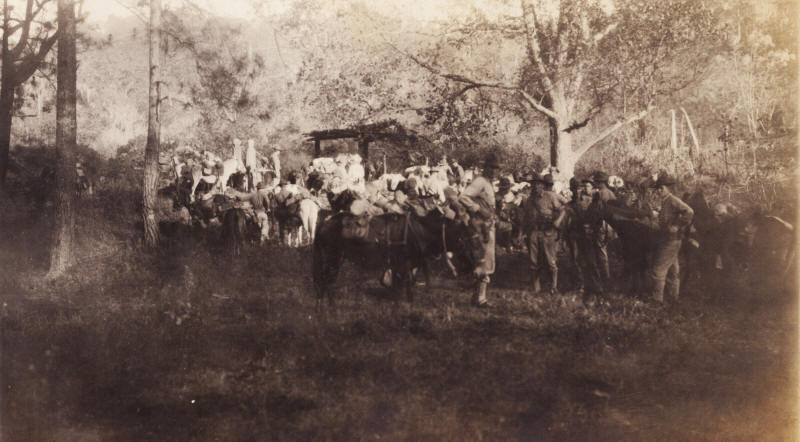
Caption: "Getting another
early start"

|
|
